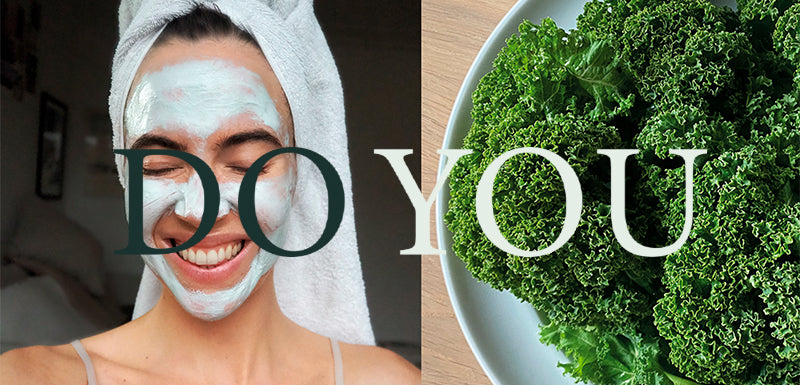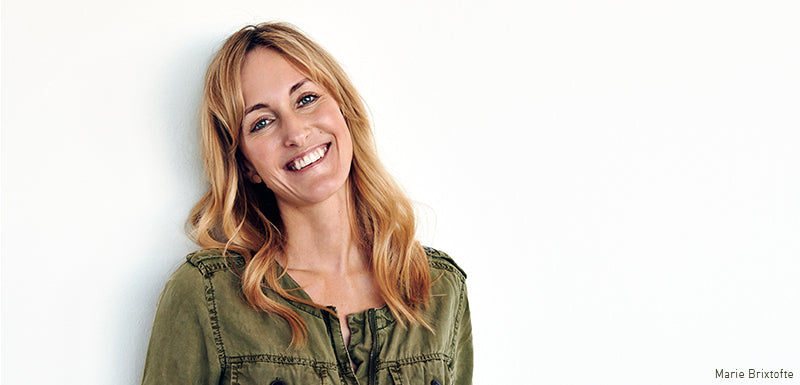The psychology behind DO YOU
DO YOU
Two words. Five letters. One consonant and four vowels. It doesn’t sound like much. And yet it’s almost everything.
I have not yet met a single client who had a good relationship with themself when we started therapy. Many had no relationship with themselves and asked with a confused expression what I meant by, "how good is your relationship with yourself?". The rest answered "bad", "I hate myself", "I am so dissatisfied with myself" and so on. And then the therapeutic work began. Actually, what is more important than having a good relationship with yourself?
In our culture, most of us forget that we should also have a relationship - and a good relationship - with ourselves. YOU are the only human being that you are together with 24/7, from the second you are born until the second you die. When you are home alone, you are actually in your own company. When your inner critic shouts that you are fat, stupid or completely spineless, then you are bullying yourself. You are actually your own Siamese twin.
The journal ‘Science’ conducted a thought-provoking experiment:
Participants were asked to choose between either being alone for 6 to 15 minutes in a room with nothing but a chair; no windows, no pictures, no TV and no telephone - or - to give oneself electric shock. 25 percent of all women and 67 percent of all men felt it was so uncomfortable to be alone with themselves that they chose to give themselves electric shocks. T.D. Wilson et al. “Just Think: The Challenges of the Disengaged Mind”, Science, 345 (2014), pp. 75-77.
DO YOU – but how to?
DO YOU! It sounds simple. And yet it is so difficult. Most of us have learned that we need to put our own needs aside and put the needs of others first. That's how most of our generation was raised. And as children, we did exactly what gave us the most love and attention possible: which was not to be selfish and not to prioritise ourselves. But the less we live in accordance with our own needs, the more we ignore ourselves or avoid relating to ourselves, the smaller our feeling of self-worth becomes, the greater the risk of anxiety, and the more we struggle with guilt and loneliness.

So how do you get started with "DO YOU"? Here are 3 things which work for me and for my clients.
1/ Cute little-you: Start by finding a picture of yourself from when you were a child - one where you look really cute. Hang the picture on the fridge, on the wall or use it as a background picture on your phone. Every time you think that you do not deserve a break, a bath or a cup of tea, or every time it is difficult to say no to something you don’t want to do, or when you start talking badly to yourself, look at the picture and think: “Does little-me deserve that? Do I want to talk to or treat little-me like that?”
2/ Speak nicely to yourself: Start writing down what your inner critic says. And hear it out, do not try to turn it off as we often do. Write everything down and eventually it has nothing more to say. Try to figure out what it is awkwardly trying to help you with. Why does it shout and shame you like that? Most often, our inner critic tries to help us with something, but it just speaks a primitive and unconstructive language. Then try to read all that it has said whilst looking at the picture of little-you. Most people can’t. Instead find out how the inner critic can speak nicely, whilst it is still holding on to whatever it was, it was trying to help you with.
Let me give you an example: My own inner critic shouted and screamed that I was fat and disgusting for years. When I finally heard it out, I found out that it was trying to make sure I did not become overweight like others in my family who had died of type 2-diabetes. Knowing this, I could ask it to speak nicely and constructively and in a way, which I would speak to a friend who was scared of getting diabetes. So now my inner critic says things like: "Oh Marie, you ate a little too much cake, good for you, now just remember to pile on the vegetables next week". And now I'm actually listening to it.
3/ DO YOU every day: Decide to do one self-loving thing for yourself every day. In the beginning it can be difficult, and maybe you should find a DO YOU ally with whom you can share ideas and get inspiration from. Self-love or self-care can be foot baths, tub bathing, a delicious cup of tea, blueberries with skyr, a face mask when watching Netflix, putting on cosy socks when your feet are cold - in fact, it's the care you would give someone else that you start giving to yourself too. But it is much more than foot baths. "DO YOU EVERY DAY" is also to listen to a good audiobook when cleaning the floors; to be mindful when in the shower; to smell your son’s hair when you hug him; to let yourself be embraced by your partner and to run with badass music in your ears.



